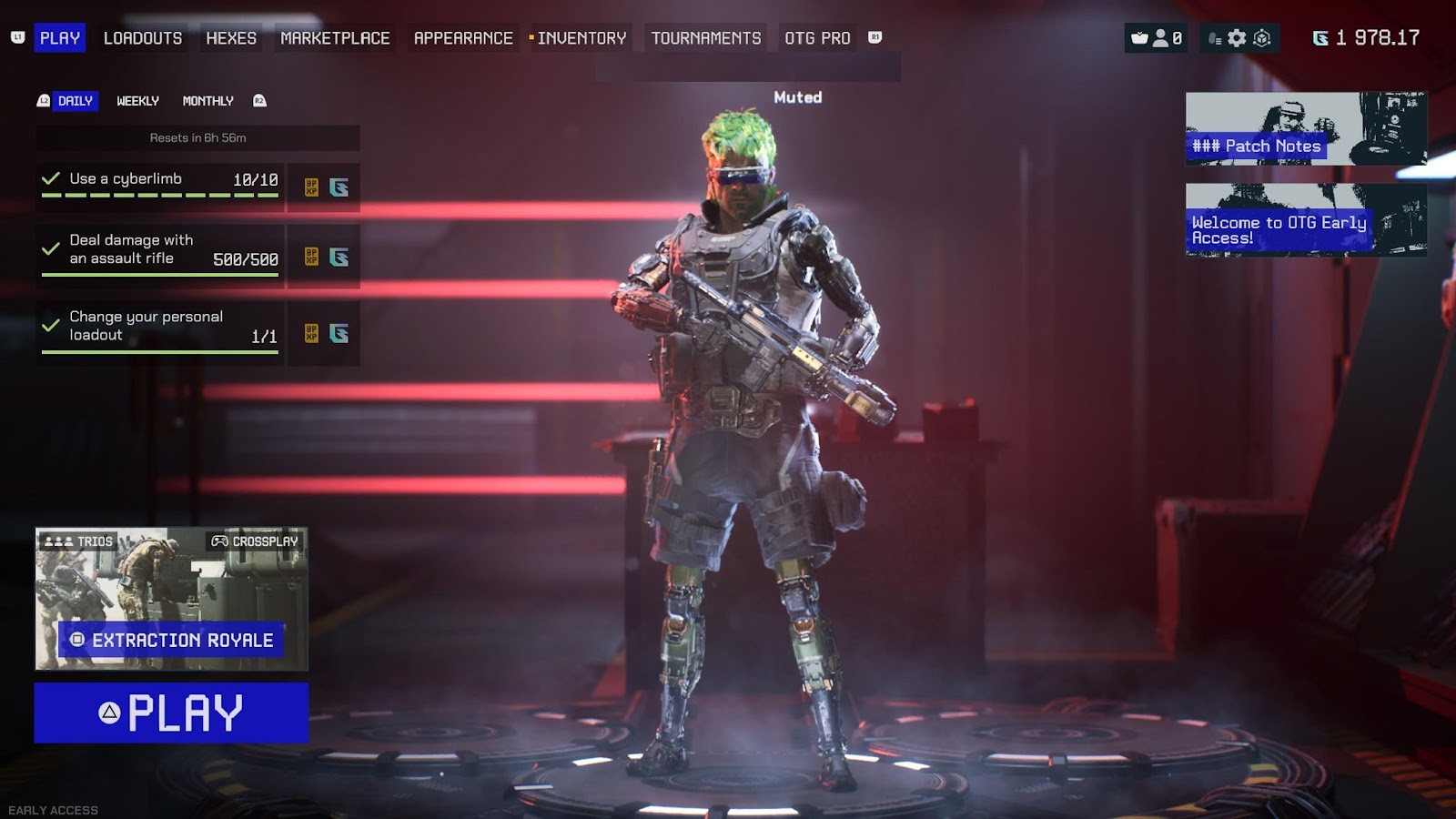There’s a lot riding on Off the Grid’s token launch
Off the Grid is showing signs of growth after an explosive beta launch

Off the Grid screenshot by David Canellis
This is a segment from the Empire newsletter. To read full editions, subscribe.
If narratives were food and AI was chicken, gaming would be the other white meat.
Gunzilla Games’ crypto-infused shooter Off the Grid is then an organic free-range pig: Its early access beta has had gamers foraging for crypto and NFTs as they please since October.
I’ve so far clocked about 40 hours. I wrote in my initial thoughts that the game was fun — it still is.
A quick refresher: Off the Grid is a battle royale in the same vein as PUBG, Fortnite and Warzone, with crypto elements powered by an Avalanche subnet which is still in testnet phase.
In-game items are actually NFTs: skins, guns, weapon attachments and cyberlimbs. You can sell those NFTs for an in-game cryptocurrency, GUN, which you also earn for each kill alongside other conditions, like lasting longer or reviving teammates.
And therein lies the hook. It mimics the crypto degen grindset in four steps:
- Play a match to earn GUN and collect item NFTs.
- Sell those item NFTs for more GUN.
- Buy more powerful item NFTs, making GUN easier to earn.
- Profit?
 Daily, weekly and monthly challenges earn you more crypto
Daily, weekly and monthly challenges earn you more crypto
After a lull following its explosive launch, Twitch stats for Off the Grid are now showing signs of growth. Its underlying testnet is still seeing about 2.5 million transactions per day, down from three million in October.
The marketplace is active, with anecdotally fewer failed transactions now that the early hype wave has subsided.
There’s talk of eventual GUN listings on exchanges and NFT sales on OpenSea. So, deep down, as fun as the game is, I suspect that I’m mostly grinding Off the Grid to collect as many rare items and as much GUN as possible before it’s a real coin.
That means there’s a lot riding on Gunzilla Games and its newly-formed GUN foundation pulling this off — as well as the eventual price of GUN in relation to the NFTs.
Nurturing a sustainable in-game economy without GUN going to zero is one thing. It’s another to maintain a high enough price for GUN so that hardcore players are incentivized enough to power the loot marketplace while protecting casual players from being priced out altogether.
In the meantime, we grind to find out.
Get the news in your inbox. Explore Blockworks newsletters:
- The Breakdown: Decoding crypto and the markets. Daily.
- 0xResearch: Alpha in your inbox. Think like an analyst.






